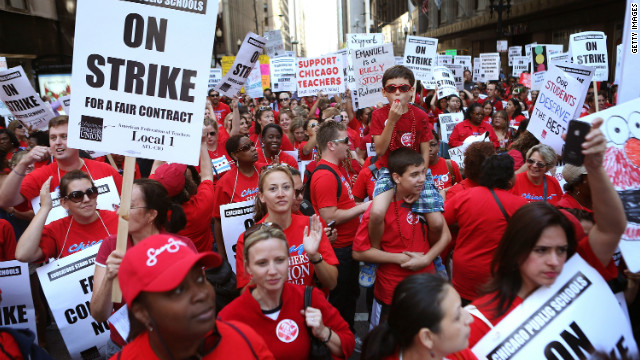
Barbara Ehrenreich is a writer to stands up for individuals in poverty and the treatment that they receive because of it. In her novel,
Nickel and Dimed, she describes her life when she experimented with disconnecting herself from her past world and completely devoting her time to work low paying jobs and living in cramped spaces. In reality, the test seems to show how difficult it is to get by on such little payments and being looked down on by others.
When she moves to Main
e to see if she could get by on a different set of jobs, she takes on a cleaning job for The Maids. They work long and strenuous hours in relatively expensive houses and are paid very little for vacuuming, dusting, and scrubbing. Their boss, Ted, holds all of the power and none of the other maids have the courage to stick up for themselves. When Barbara expresses her frustrations on their drive back to the office after Holly had hurt her ankle while on the job, the other women do not stir or say a word. She explains how she was "shaking with anger (at Ted), betrayal (in the cases of Marge and Denise), and most of all at my own total helplessness" (112). Barbara is so affected that she takes matters into her own hands. When Holly agrees to call Ted to report her incident, she repetively apologizes and wheeps over the phone. Enraged, Barbara takes the phone and yells at Ted that he "can't keep putting money above his employees' health and [she doesn't] want to hear about 'working through it,' because [Holly] is in really bad shape" (110). Luckily her rant turns out to only help her as well as Holly when she returns to the office. When she confronts Ted, he rewards her with a raise to $6.75 an hour and excuses Holly to go home, but still get paid for the day.

Sticking up to a boss is intimidating for anyone, especially if you work for very little and could be replaced in a heartbeat. Awful work conditions have lasted throughout centuries all around the world sand very few people take the initiative to use what little voice they have and stick up for themselves and their coworkers. Barbara is still keeping her secret about her project from the new people that she meets, but cannot stand such oppression and little voice that these women have gotten in the work place. How they support multiple family members on a salary meant for one person while their corporate leaders make money without a care.
 Throughout Barbara Ehrenreich's novel, Nickel and Dimed, she steps away from her life as a successful writer and devotes her life to living off of low paying jobs like waiting on the masses and refolding shirts in the women's section of the nation's largest super store.
Throughout Barbara Ehrenreich's novel, Nickel and Dimed, she steps away from her life as a successful writer and devotes her life to living off of low paying jobs like waiting on the masses and refolding shirts in the women's section of the nation's largest super store. When arriving at her afternoon shift at Walmart, Barbara grabs the daily newspaper from the overflowing garbage outside. The headline describes how the "1,450 hotel workers, members of the Hotel Employees and Restaurant Employees Union, strike nine local hotels. A business writer in the Pioneer Press, [comments] on this plus a Teamsters' striking at the Pepsi-Cola bottling plant and a march by workers demanding union recognition at a St. Pail meatpacking plant (187). This seems to light a fire in Ehrenreich's heart and she expresses her feelings toward starting a union with her fellow employees. Similar to before at her maid job, she feels an initiative to stand up for the other voiceless workers, but in this case, she is not the first to do so. After this headline is when she starts expressing her opinion once more to those who would listen, and saw that many felt the same way that she did. Everyone seemed to want higher wages, more reasonable break times, and more voice with their superiors who they lived in fear of, even if they were thirty years younger then them. When Barbara confronted her boss when she worked at The Maids, she was able to get a raise and ensure that her injured friend continued to get paid after hurting her ankle while on the job. When she tells her friend Melissa that she is planning on quitting their Walmart job, Melissa felt the same way and planned on applying for a job at a local factory for higher wages. Even the news report of strikes and unions made another coworker of hers ecstatic in the break room and even swore from excitement, breaking one of the major rules of the job.
When arriving at her afternoon shift at Walmart, Barbara grabs the daily newspaper from the overflowing garbage outside. The headline describes how the "1,450 hotel workers, members of the Hotel Employees and Restaurant Employees Union, strike nine local hotels. A business writer in the Pioneer Press, [comments] on this plus a Teamsters' striking at the Pepsi-Cola bottling plant and a march by workers demanding union recognition at a St. Pail meatpacking plant (187). This seems to light a fire in Ehrenreich's heart and she expresses her feelings toward starting a union with her fellow employees. Similar to before at her maid job, she feels an initiative to stand up for the other voiceless workers, but in this case, she is not the first to do so. After this headline is when she starts expressing her opinion once more to those who would listen, and saw that many felt the same way that she did. Everyone seemed to want higher wages, more reasonable break times, and more voice with their superiors who they lived in fear of, even if they were thirty years younger then them. When Barbara confronted her boss when she worked at The Maids, she was able to get a raise and ensure that her injured friend continued to get paid after hurting her ankle while on the job. When she tells her friend Melissa that she is planning on quitting their Walmart job, Melissa felt the same way and planned on applying for a job at a local factory for higher wages. Even the news report of strikes and unions made another coworker of hers ecstatic in the break room and even swore from excitement, breaking one of the major rules of the job.
